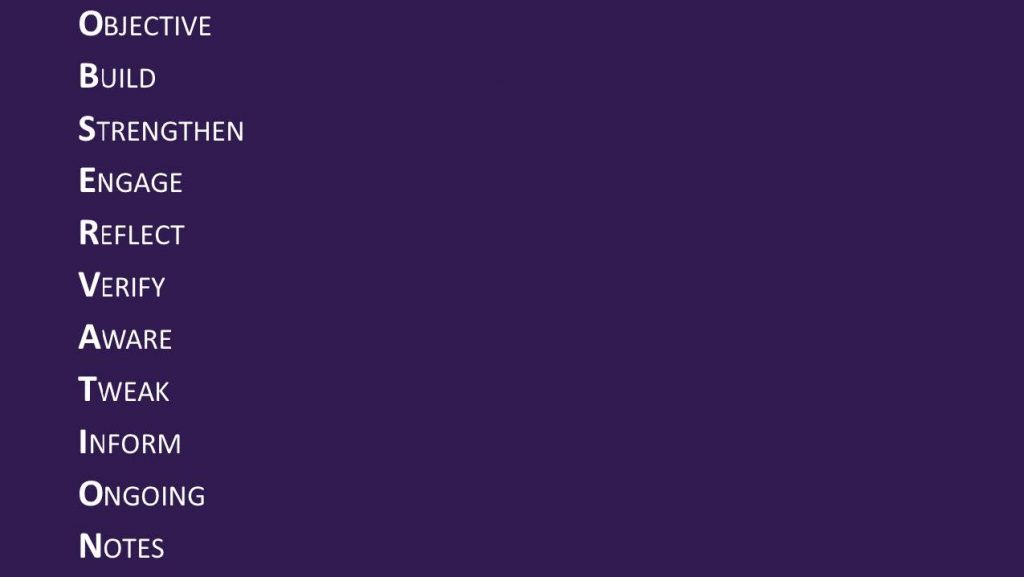1 The Role of Observation
Observations are conducted every day in early childhood classroom environments. Teachers are constantly surveying the environment and completing safety checks to make sure the equipment and materials are safe for the children to use. Teachers also perform daily health screenings to ensure their children are healthy enough to participate in program activities. Beyond the standard safety check and health screening, teachers have many other important tasks and duties that they must do in order to maintain a copacetic classroom environment. Intentional teachers use their observations to plan and implement curriculum, set up engaging learning environments, monitor the children’s social interactions, track behaviors, communicate with families, and assess each child’s progress and development. Essentially, observations help teachers be more accountable. By conducting regular observations intentional teachers can:
- Evaluate program effectiveness
- Evaluate teacher effectiveness
- Make improvements to ensure quality practices
- Plan and implement developmentally appropriate curriculum
- Measure and assess a child’s development
- Develop respectful family partnerships
- Understand the cultural practices and family structure
- Select effective learning strategies to support and accommodate the diverse needs of children
- Ensure ethical conduct and professional standards of practice
- Teach with confidence
Observation acronym that stands for: objective, build, strengthen, engage, reflect, verify, aware, tweak, inform, ongoing, notes

Pin It! Observation
If we want to understand children, we must first watch them and listen to them. Then, we must try to make sense of what we observed and give it meaning. The role of observation is to provide teachers with information and evidence that they will need to make informed decisions on how to best support the children in their care. With each observation, you will get a glimpse into a child’s developing mind. Not only will you see a child’s personality emerge, you will be able to see what a child can do. As you watch your children, you will see how they problem solve when conflicts arise and how they cope with the stress from being in a group setting. You will learn about their individual needs and their cultural practices. When you watch children closely, their interests and abilities are revealed. With each observation, you will gain useful insight that will help you become an intentional teacher.
- Page 64 The Integrated Nature of Learning (2016)by the CDE is used with permission ↵

